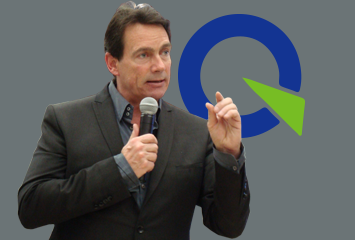Like this article? rabble is reader-supported journalism. Chip in to keep stories like these coming.
Long before there was any hint he might have political ambitions, Pierre Karl Péladeau, media tycoon, appeared before a House of Commons committee to complain about CBC/Radio-Canada.
Conservative Stephen Harper was prime minster then, and his caucus was full of MPs who had a particular loathing for the public broadcaster.
They relished in describing the corporation as a state, rather than public, broadcaster.
Conservatives were oblivious to the irony of that epithet, given that high on the list of their complaints about CBC was that it was hostile to their party.
A so-called state broadcaster that did not kowtow to the party in power: a bizarre concept.
A Quebec Citizen Kane
Péladeau had a receptive audience among the Harper gang on the House committee, mostly anglophone MPs from Ontario and the West. They were almost certainly blissfully unaware of the Quebec billionaire’s separatist sympathies.
Opposition MPs were less impressed.
NDP committee member Charlie Angus said to Péladeau: “You’re our Citizen Kane.”
These days, we might describe the now-former Parti Québecois (PQ) leader as something of a cross between Italy’s Silvio Berlusconi and the United States’ Donald Trump.
Like the latter, he inherited his wealth, his corporate power, his over-sized ego and his vast sense of self-entitlement.
Like the former, he had no respect for journalistic or creative independence, and, as a political leader, conflated his corporate interests with those of the state.
Péladeau somehow managed to be leader of the official opposition Parti Québecois, while actively maintaining his business interest in media conglomerate Québecor. There was no blind trust for this billionaire.
When Péladeau (or PKP as he is known in Quebec) decided to run for the Parti Québecois in the last provincial election, this writer commented that he was pulling the party founded by the social democrat René Levesque far to the right.
Of course, the PQ was, from the start, a coalition of nationalists that spanned the political spectrum.
Levesque had been a Radio-Canada journalist and popular television host. In 1960, he ran and won a seat for the Quebec provincial Liberal Party. The Liberals, led by Jean Lesage, won, and ushered in Quebec’s Quiet Revolution. Lesage named Lévesque to his cabinet as Minister of Natural Resources, in which capacity the former broadcaster spearheaded the nationalization of hydro power in Quebec.
René Levesque quit the Liberals in 1967, to found a party he called the Mouvement Souveraineté-Association (MSA), the sovereignty-association movement.
On the so-called national question, Lévesque was decidedly moderate. What he really wanted was a reconfigured Canadian federation, in which Quebec would be an equal partner with the rest of Canada, rather than one of 10 provinces — hence, his emphasis on association as much as on sovereignty.
The former Liberal was also an avowed progressive, who looked admiringly at the successes of European social democracies such as Sweden.
That leftward tilt did not stop Lévesque from engineering a merger with the right-of-centre Ralliement National, a separatist party that had emerged from the populist, mostly rural, Creditiste movement.
Nor did Lévesque’s moderate stance on separation stop him, subsequently, from bringing on board the more hardline nationalist supporters of Pierre Bourgault’s Ralliement pour l’Indépendance Nationale.
Péladeau was an outlier
But while the Parti Québecois Léveseque founded may have always been a big tent, throughout its history it was mostly dominated by one faction, the ideologically left of centre and moderate on separation faction of its first leader.
Péladeau was an outlier among PQ leaders.
On economic, labour and social policy he was far to the right of any of his predecessors, even former federal Conservative Lucien Bouchard.
And as for the separation issue, the media baron turned political leader was more hardline and radical than any previous PQ leader, with the possible exception of Jacques Parizeau.
In an odd way, the PQ now finds itself in a situation not unlike that of Lévesque’s MSA.
Today, as in 1967, there are a number of players on the nationalist/separatist side of the field.
The right-of-centre Coalition Avenir Québec (CAQ) and the environmentalist-socialist Québec Solidaire both have seats in the National Assembly. Both compete electorally for the PQ’s natural clientele. (There are other pro-independence groups, but they are on the fringes.)
Péladeau used to talk about engineering some sort of convergence among sovereigntist parties (not necessarily including the CAQ), although not a formal merger.
It will be up to his successor to decide whether that quixotic quest is worth the effort.
The more pressing choice for the Parti Québecois now is whether it wants to emphasize the separatist/nationalist side of its personality or the progressive/social-democrat side.
During the referendum campaign of 1995, Lucien Bouchard, then leader of the Bloc Québecois, complained that the unresolved national question prevented Quebecers from talking among themselves about all the other social, economic and environmental issues that confronted them.
Is there a chance the PQ might now decide to redefine itself as an alternative, progressive government, and put the separation question on the most distant of distant back burners?
Don’t bet on it.



